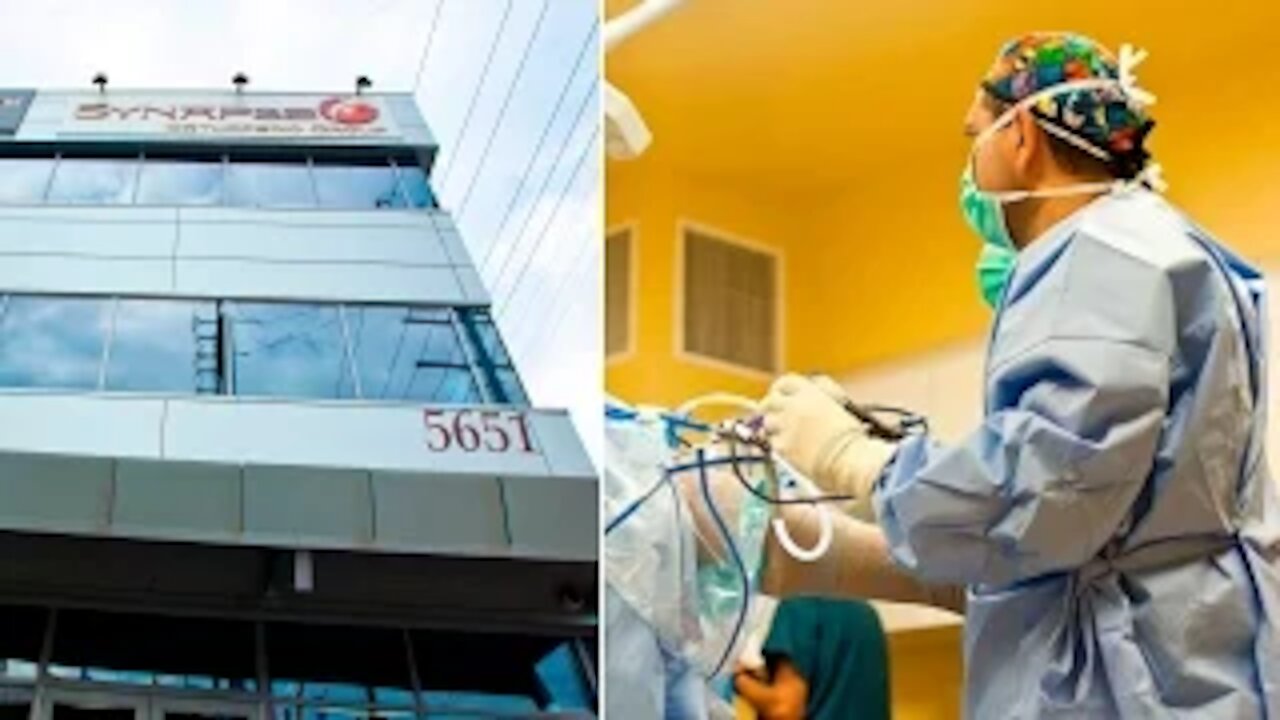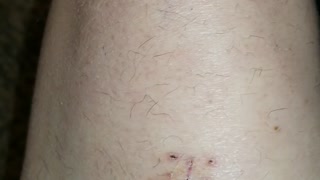Premium Only Content

Complex Meniscus Tear Patient Recovery after Knee Surgery
Meet Ted.
Ted came to Edwin Haronian after an injury where he suffered from a complex tear of his meniscus. Since the surgery, he has been coming to Synapse Orthopedic Group for physical therapy which is helping him get better from his injury. We wish him the best during his recovery.
Call us to schedule an appointment: (818) 788-2400
Locations in Pomona, Sherman Oaks, and Los Angeles
A meniscus tear is a common knee injury. The meniscus is a rubbery, C-shaped disc that cushions your knee. Each knee has two menisci (plural of meniscus)-one at the outer edge of the knee and one at the inner edge. The menisci keep your knee steady by balancing your weight across the knee. A torn meniscus can prevent your knee from working right.
A meniscus tear is usually caused by twisting or turning quickly, often with the foot planted while the knee is bent. Meniscus tears can occur when you lift something heavy or play sports. As you get older, your meniscus gets worn. This can make it tear more easily.
There are three types of meniscus tears. Each has its own set of symptoms.
With a minor tear, you may have slight pain and swelling. This usually goes away in 2 or 3 weeks.
A moderate tear can cause pain at the side or center of your knee. Swelling slowly gets worse over 2 or 3 days. This may make your knee feel stiff and limit how you can bend your knee, but walking is usually possible. You might feel a sharp pain when you twist your knee or squat. These symptoms may go away in 1 or 2 weeks but can come back if you twist or overuse your knee. The pain may come and go for years if the tear isn't treated.
In severe tears, pieces of the torn meniscus can move into the joint space. This can make your knee catch, pop, or lock. You may not be able to straighten it. Your knee may feel "wobbly" or give way without warning. It may swell and become stiff right after the injury or within 2 or 3 days.
If you are older and your meniscus is worn, you may not know what you did to cause the tear. You may only remember feeling pain after you got up from a squatting position, for example. Pain and slight swelling are often the only symptoms.
Your doctor will ask about past injuries and what you were doing when your knee started to hurt. A physical exam will help your doctor find out if a torn meniscus is the cause of your pain. Your doctor will look at both knees and check for tenderness, range of motion, and how stable your knee is. X-rays are also usually done.
You may need to meet with an orthopedic surgeon for more testing. These tests may include an MRI, which can give a clear picture of where a tear is and how serious it is.
For more information please visit our website at: http://www.synapsedoctor.com
You can also follow our social media pages at:
http://www.facebook.com/synapsedoctor
http://www.instagram.com/synapsedoctor
http://www.twitter.com/synapsedoctor
-
 3:28
3:28
KTNV
4 years agoRecovery After Cosmetic Surgery
121 -
 0:21
0:21
ozarkmomma2
4 years agoPlaying after surgery
308 -
 1:39
1:39
buchholzbob
4 years ago $0.03 earnedKnee Surgery
972 -
 1:28
1:28
BANG Showbiz EN
4 years agoCrystal Hefner 'almost died' after cosmetic surgery operation
80 -
 1:27
1:27
Buzzvideos - EN
4 years agoWombat makes full recovery after fox-attack
294 -
 0:24
0:24
Buzzvideos - EN
4 years agoDog can't eat after surgery
65 -
 1:43
1:43
WMAR
4 years agoTwo men injured after shooting outside of Essex apartment complex
10 -
 2:00
2:00
WFTS
4 years agoGulfport begins recovery after Eta left behind major flooding
73 -
 0:22
0:22
KTNV
4 years agoOne dead after shooting at Las Vegas apartment complex
68 -
 1:43
1:43
Calan
4 years agoBoxer dog adapts to cone after surgery
74